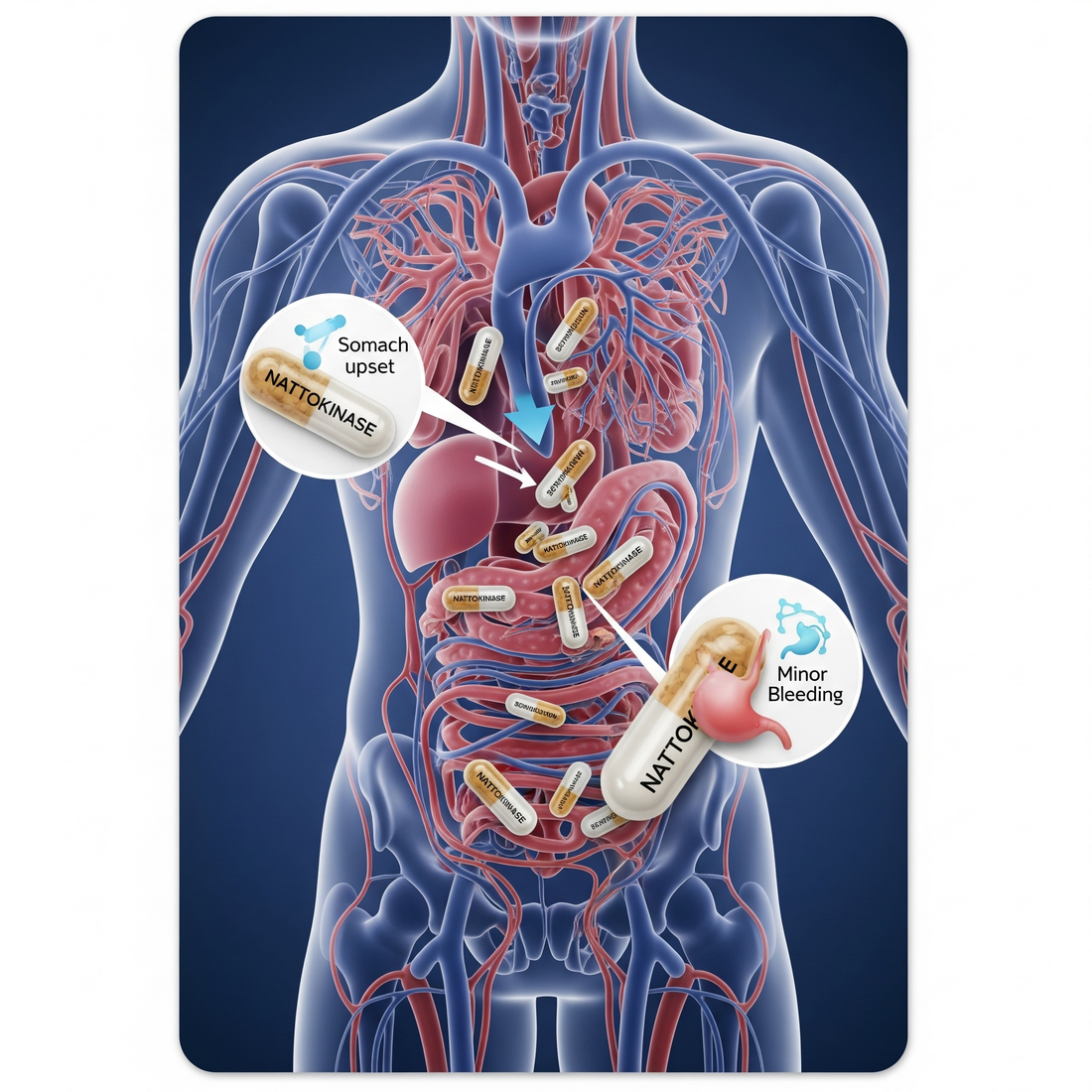
What are the most common side effects of nattokinase?
Share
Understanding the potential side effects of nattokinase is crucial before incorporating this powerful Japanese enzyme into your wellness routine. While nattokinase has been traditionally used for centuries and offers remarkable cardiovascular benefits, being informed about its effects helps you make the best decision for your health journey.
Nattokinase, derived from the traditional Japanese food natto, is a natural enzyme that has gained significant attention for its blood pressure support and circulation benefits. This premium enzyme supplement has become increasingly popular as a natural alternative to conventional blood thinners, but like any supplement, it's important to understand how it might affect your body.
Understanding Nattokinase and Its Effects
Before diving into side effects, it's essential to understand what nattokinase is and how it works. This nattokinase enzyme is extracted from fermented soybeans and has been part of Japanese wellness practices for generations. The enzyme works by supporting healthy blood flow and circulation, which is why many people turn to nattokinase for blood pressure management and cardiovascular health.
Most Common Side Effects of Nattokinase
While nattokinase is generally well-tolerated by most people, some individuals may experience certain effects, especially when first starting supplementation or taking higher doses.
Mild Digestive Effects
- Stomach upset or nausea - Some users report mild digestive discomfort, particularly when taking nattokinase on an empty stomach
- Bloating or gas - The fermented nature of the enzyme may cause temporary digestive changes as your system adjusts
- Diarrhea - Rarely reported, but may occur in sensitive individuals or with higher doses
Blood-Related Effects
- Increased bleeding tendency - As a natural blood thinner, nattokinase may increase bleeding time, which is actually its intended function but should be monitored
- Easy bruising - Some individuals may notice they bruise more easily while taking nattokinase supplements
- Heavy menstrual periods - Women may experience changes in their menstrual flow due to the blood-thinning properties
Allergic Reactions
- Skin reactions - Rare cases of rash or itching have been reported, particularly in individuals sensitive to soy products
- Respiratory symptoms - Very uncommon, but some people may experience breathing difficulties if allergic to the enzyme
Timing Considerations: Nattokinase Morning or Night?
Many people wonder about the best timing for nattokinase supplementation. While side effects are generally mild regardless of timing, taking nattokinase before bed may help minimize any potential digestive effects, as your body can process the enzyme during sleep. However, some prefer morning dosing to support daytime circulation.
Who Should Exercise Caution?
Certain individuals should be particularly mindful of nattokinase effects and consult healthcare providers before starting supplementation:
- People taking prescription blood thinners or anticoagulants
- Individuals scheduled for surgery within two weeks
- Those with bleeding disorders or low platelet counts
- Pregnant or breastfeeding women
- People with severe liver conditions
Minimizing Potential Side Effects
To reduce the likelihood of experiencing adverse effects, consider these strategies:
- Start with a lower dose - Begin with a smaller amount to assess your body's response
- Take with food - This can help minimize digestive discomfort
- Stay hydrated - Proper hydration supports the enzyme's function and reduces side effects
- Choose quality supplements - Premium nattokinase supplements like those made in FDA-registered facilities with third-party testing tend to have fewer additives that might cause reactions
The Benefits Often Outweigh the Risks
While it's important to be aware of potential side effects, many users find that the cardiovascular benefits of nattokinase far outweigh any minor discomfort. Research suggests that nattokinase may support:
- Healthy blood pressure levels
- Improved circulation and arterial health
- Natural cardiovascular wellness
- Reduced arterial plaque formation
Choosing the Right Nattokinase Supplement
When selecting a nattokinase supplement, quality matters significantly in terms of both effectiveness and minimizing side effects. Look for:
- High potency formulas - Such as 4000 FU nattokinase for optimal benefits
- Clean, pure ingredients - Zero stearates and artificial additives
- Third-party testing - Ensures purity and potency
- Vegan and organic options - Often gentler on the digestive system
- Made in USA facilities - Following strict quality standards
When to Consult a Healthcare Provider
While nattokinase is generally safe for most healthy adults, certain situations warrant professional medical guidance:
- If you experience persistent or severe side effects
- Before combining with other blood-thinning medications
- If you have underlying cardiovascular conditions
- When planning surgical procedures
Experience Reports and User Feedback
Many nattokinase experience reports from users indicate that side effects are typically mild and temporary. Most individuals who experience initial digestive effects find they resolve within a few days as the body adjusts to the supplement. The key is starting slowly and paying attention to your body's response.
Conclusion
Understanding the potential side effects of nattokinase empowers you to make informed decisions about your cardiovascular health journey. While most people tolerate this traditional Japanese enzyme very well, being aware of possible effects helps ensure a positive supplementation experience.
The most common side effects are generally mild and manageable, including minor digestive effects and the intended blood-thinning action. By choosing a high-quality nattokinase supplement with clean ingredients and starting with appropriate dosing, you can maximize benefits while minimizing any potential discomfort.
Remember that individual responses vary, and what works best for one person may differ for another. The centuries-old tradition of using nattokinase in Japanese wellness practices, combined with modern quality standards and scientific understanding, offers a promising natural approach to cardiovascular health when used responsibly.
